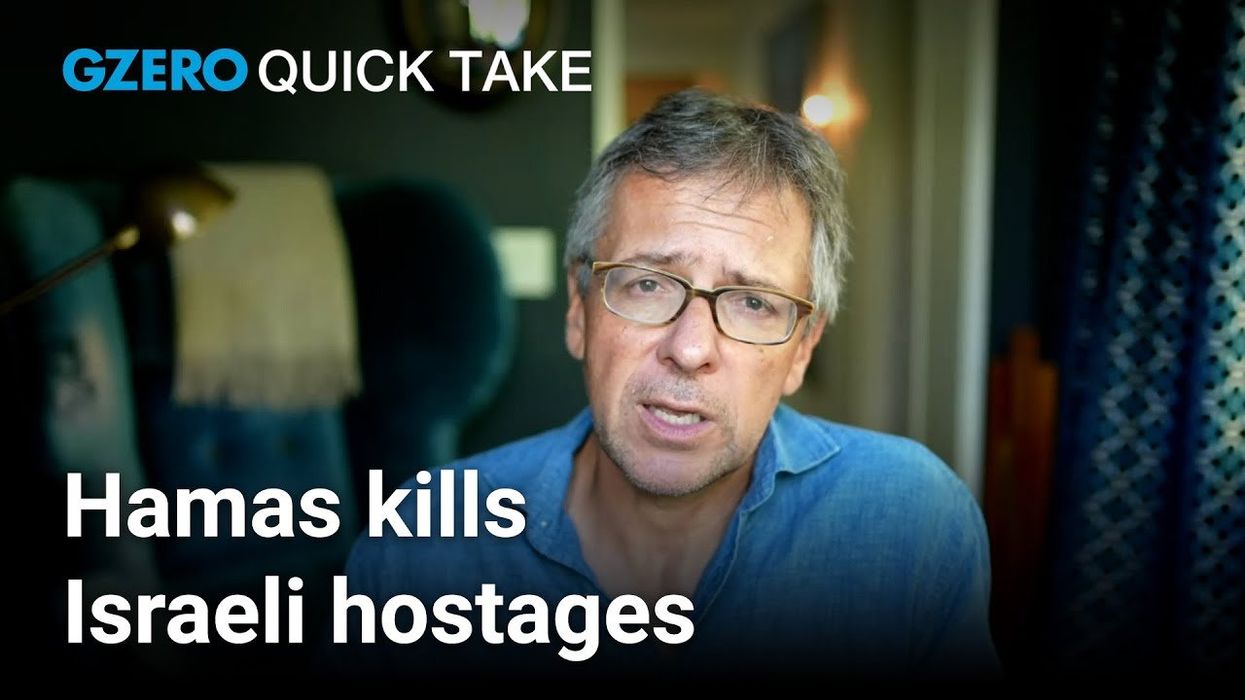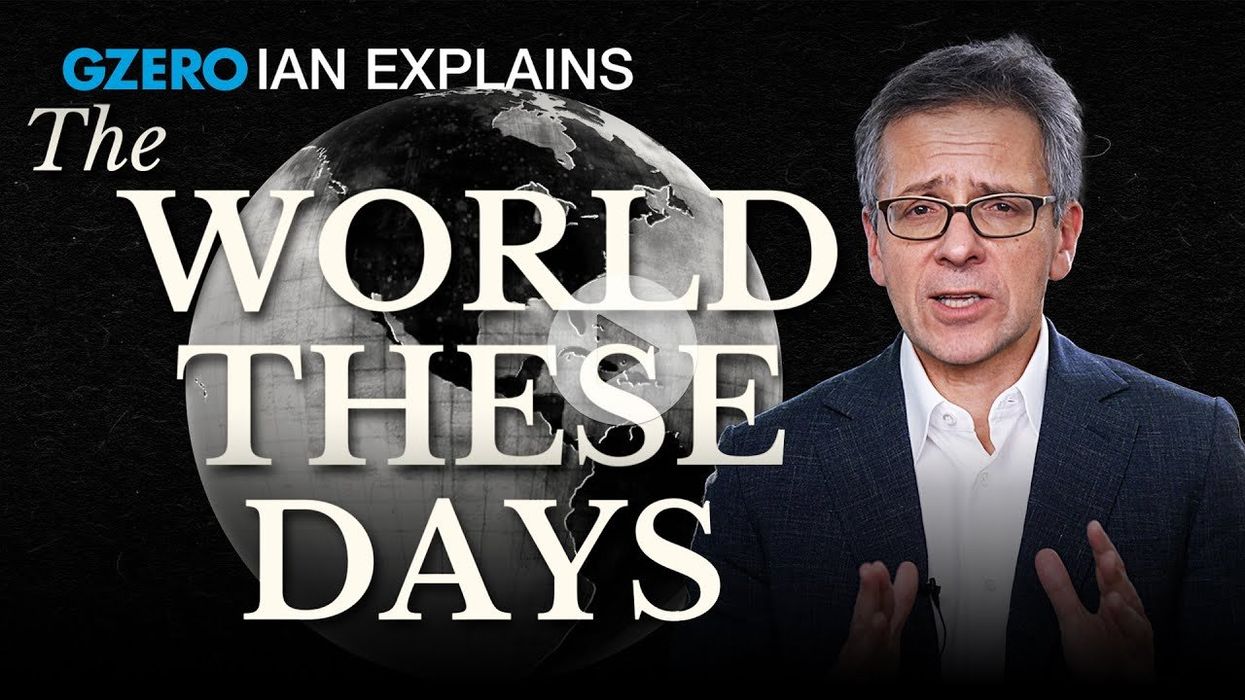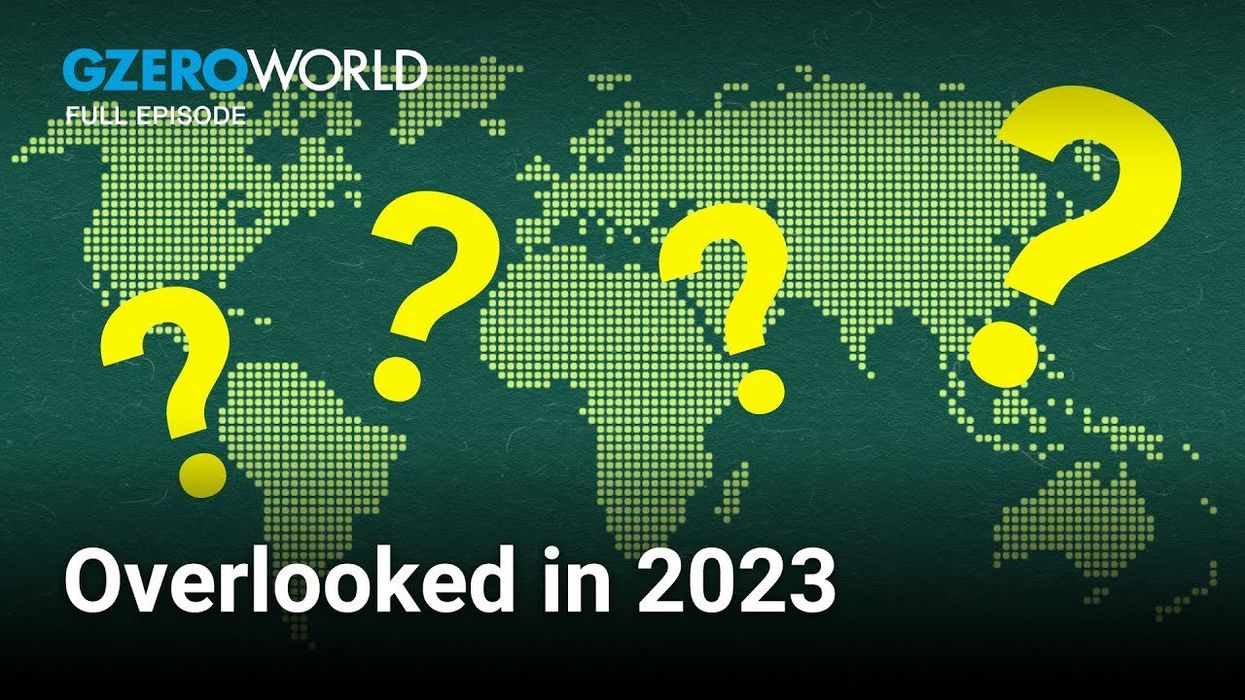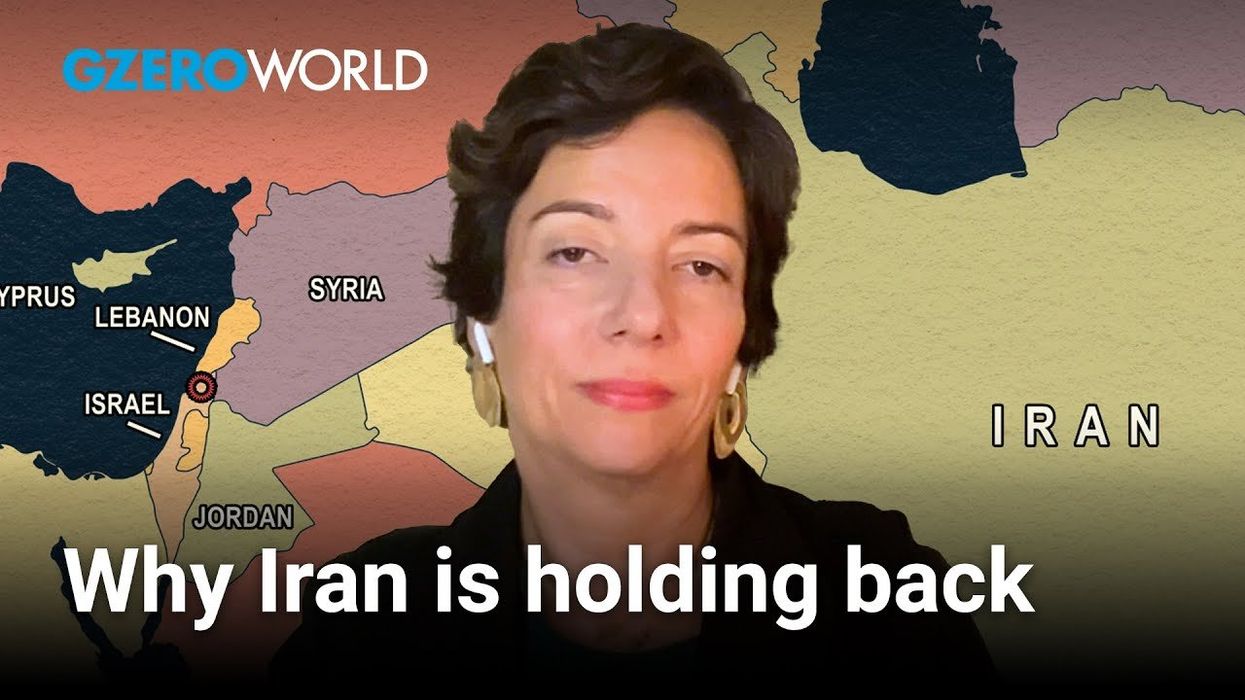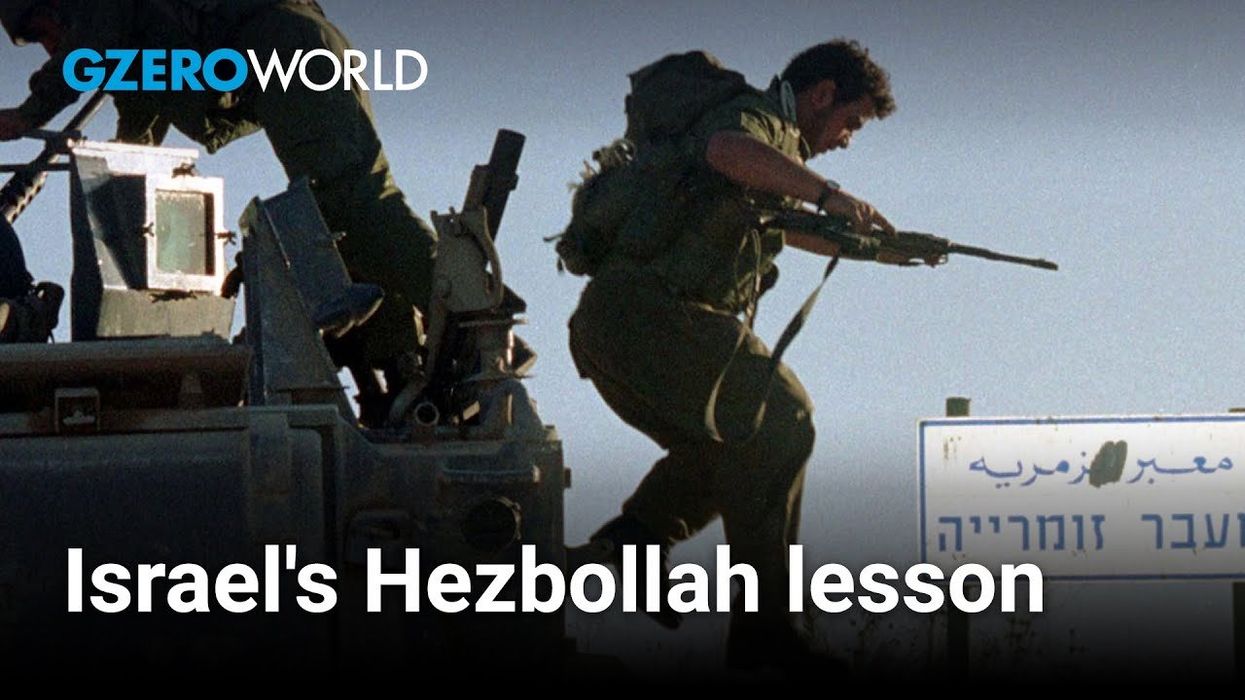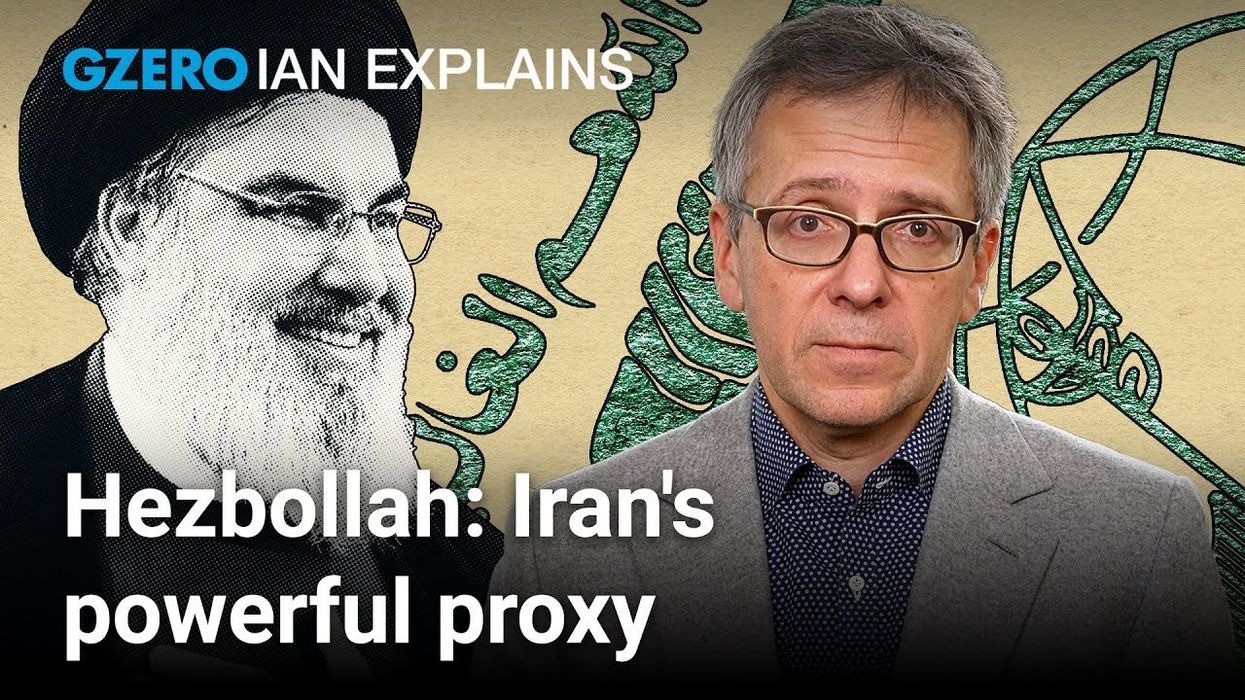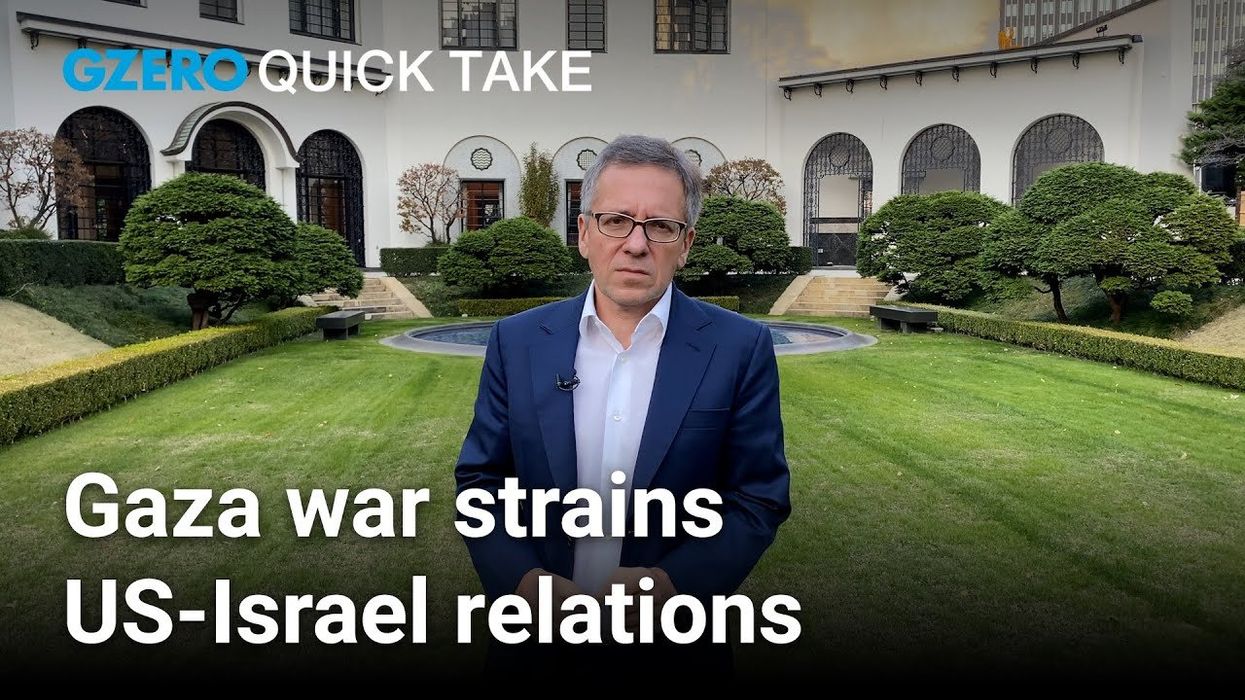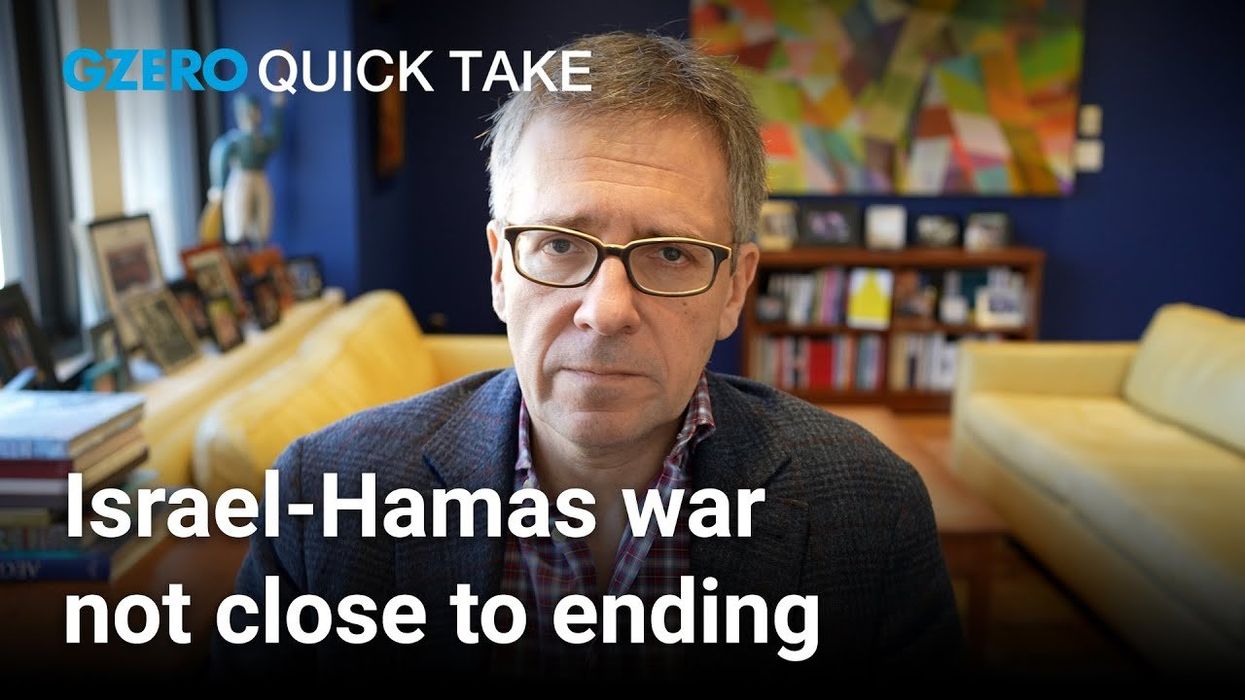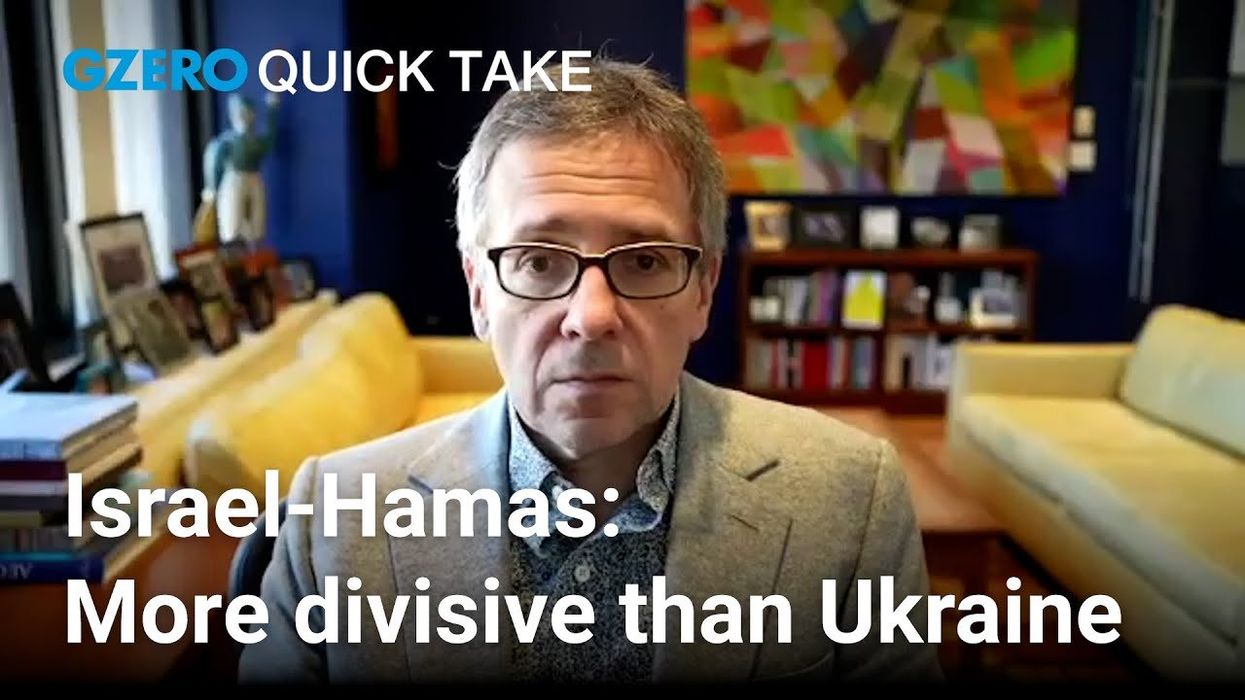Quick Take
Israelis push Netanyahu for cease-fire after Hamas kills hostages
Ian Bremmer's Quick Take: The largest social dissent we have seen since the October 7 terror attacks, since the war in Gaza has started in Israel. And the proximate reason for this was the Hamas execution of six Israeli hostages in Rafah. It's a big deal; it's a general strike of the largest labor union in Israel. They want an end to the fighting, they want the hostages back, and they want a deal done, and they're tired of the way this war has been prosecuted.
Sep 03, 2024
